News

7 INSPIRE PARTNERS VISIT THE DMEO SITE IN SLOVENIA: CENTRAL WASTEWATER TREATMENT PLANT DOMŽALE-KAMNIK
On April 17th 2024, 7 partners of HEU Mission project INSPIRE visited the Slovenian demo site location to determine plans for implementation of technologies for treatment of microplastics in wastewater. Representatives from VLIZ, University of Maribor (UM), CleraOne, Waste & Water (WnW), DELVEC, KTH Royal Institute of Technology, and Infordata all attended the visit at the demo site in Domžale, where the meeting was hosted by the public company Central Wastewater Treatment plant (WWTP) Domžale-Kamnik.
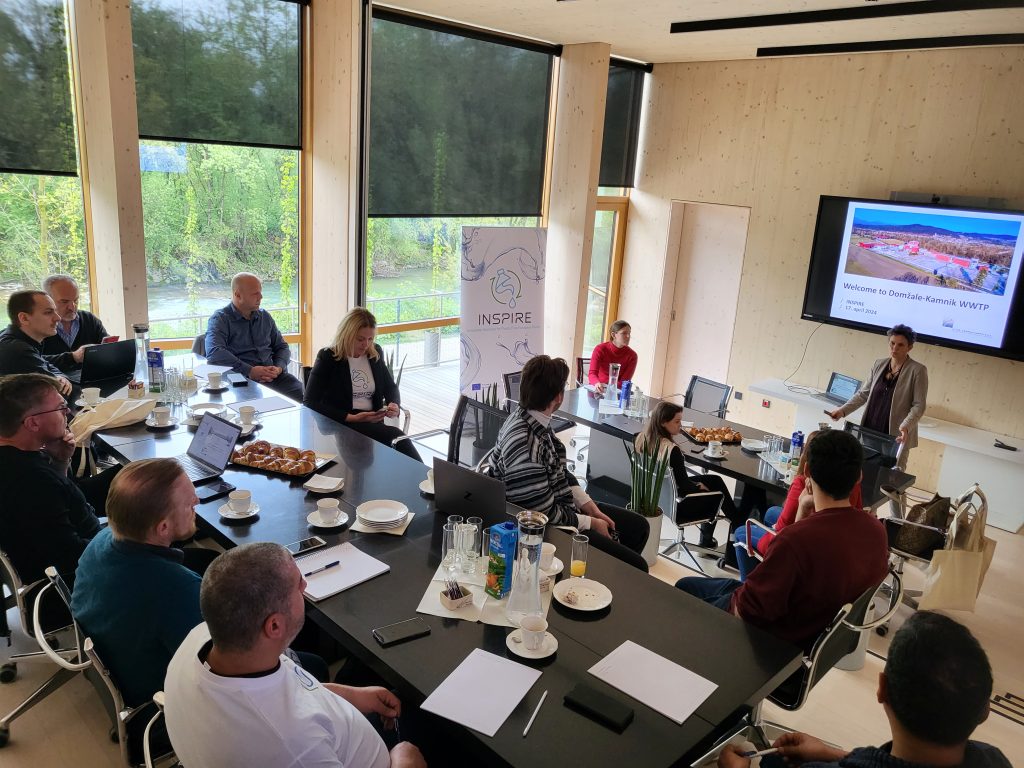
Meeting of INSPIRE partners and Central WWTP Domžale-Kamnik.
INSPIRE partners and representatives of the Domžale WWTP discussed the technical parameters for implementing the cascade solution for treatment of microplastics at the WWTP effluent. INSPIRE partners will install a system allowing for pilot testing of 4 connected technologies, namely the EcoPlex Microplastic Remover device by WnW, the membrane filtration unit by CleraOne, the SUPER-TW-NET filter by DELVEC, and the photocatalytic reactor by KTH. The technologies of CLERA and DELVEC will be installed in parallel to test different treatment routes. The system will be digitalized for real-time monitoring of several parameters by Infordata. The effectiveness of the system through sampling will be evaluated by VLIZ for microplastics and Fresenius University for nanoplastics, while the sustainability assessment will be conducted by UM. CleraOne will collaborate with the facility to install the equipment as the demo site leader in Slovenia.
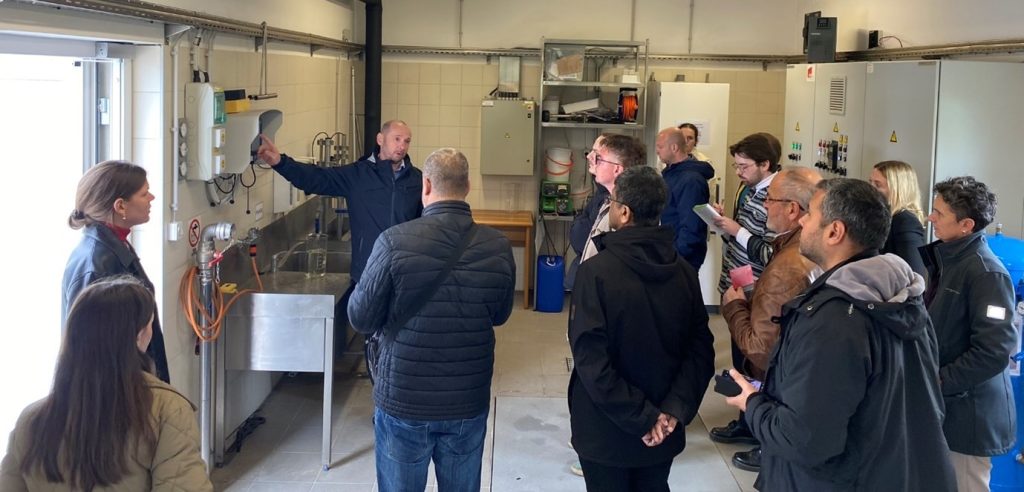
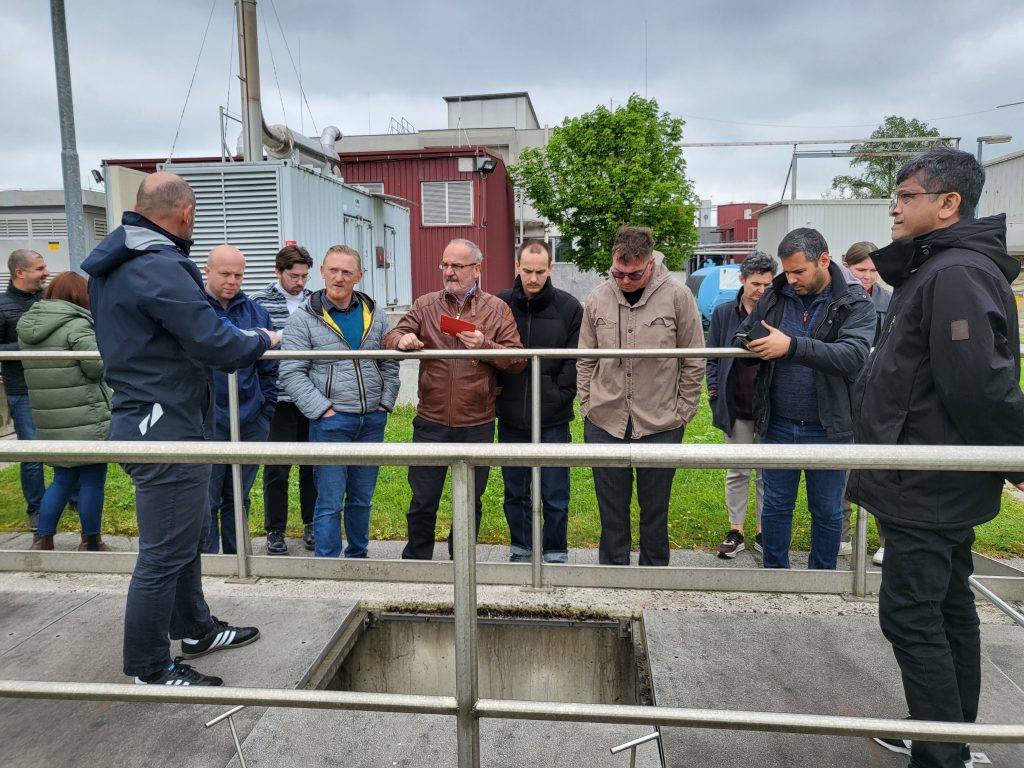
Demo site tour at Central WWTP Domžale-Kamnik.
A tour of the WWTP facility enabled the INSPIRE partners to view the exact locations for implementation of technologies, as well as to determine the sampling points. Results of analysis from the specified sampling points will enable validatation of technology effectiveness at removing microplastic litter.
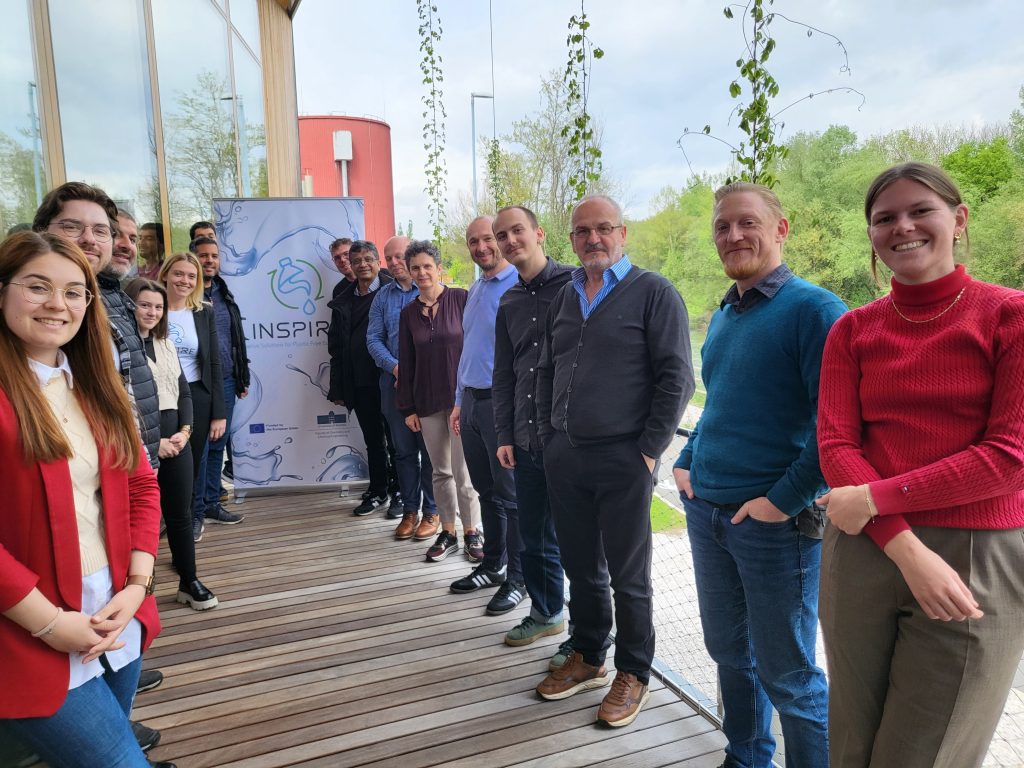
Dajana Jeglič (CLERA), Rok Pučnik (UM), Elazem Abdelhamid (INFOR), Lara Erjavec (CLERA), dr. Annamaria Vujanović (UM), Nikos Katsafados (WnW), Jan Puhar (UM), Kostja Klabjan (CLERA), prof. dr. Joydeep Dutta (KTH), dr. Gert Everaert (VLIZ), dr. Marjetka Levstek (WWTP Domžale-Kamnik), Peter Cerar (WWTP Domžale-Kamnik), Dimitris Deligiannakis (DELVEC), prof. dr. Yiannis Deligiannakis (DELVEC), Enrico Mariotti (INFOR), Špela Erčulj (WWTP Domžale-Kamnik).
The technical meeting resulted in a detailed plan for technology installation, testing and sampling timelines, as well as training of technicians who will operate the devices. The partners look forward to the collaboration with the WWTP in Domžale to effectively test and showcase these innovative solutions for microplastics removal from wastewater, and to provide future outlooks on microplastic treatment.
_____________________________________________________________________________________________________________________
INSPIRE PARTNERS VISIT FACULTY OF CHEMISTRY AND CHEMICAL ENGENEERING AT UNIVERISTY OF MARIBOR
Faculty of Chemistry and Chemical Engineering, University of Maribor (UM FKKT) hosted an important meeting under INSPIRE HEU Mission project on April 16th, 2024. The meeting was attended by esteemed partners and collaborators, including prof. dr. Joydeep Dutta from the Royal Institute of Technology (KTH) and CEO Kostja Klabjan from CleraOne company. Prof. dr. Dutta is the head of the Functional NanoMaterials Group in the Department of Applied Physics at KTH, which is a distinguished research institute, ranking among the top 100 universities worldwide in engineering, technology and natural sciences, and 7th among universities in the EU in the subject area of Engineering & Technology. The event served as a platform for in-depth discussions and strategic planning to drive research initiatives within INSPIRE.
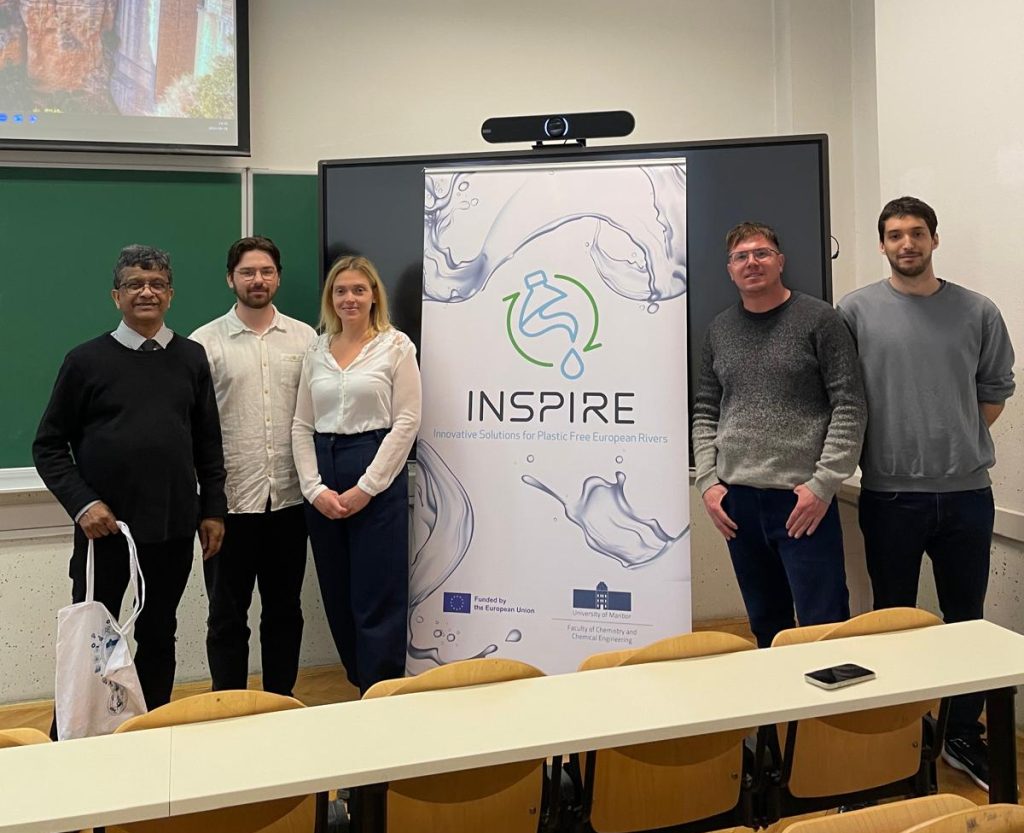
Prof. dr. Joydeep Dutta (KTH), Rok Pučnik (UM FKKT), dr. Annamaria Vujanović (UM FKKT), Kostja Klabjan (Clera.One), Jan Puhar (UM FKKT).
The visit commenced with a warm welcome and a reception hosted by prof. dr. Zoran Novak, Dean of the Faculty, which provided a dignified setting for a day of stimulating discussion and knowledge sharing. Participants had the privilege of touring our state-of-the-art laboratories, gaining valuable first-hand insights into our research facilities and ongoing projects.
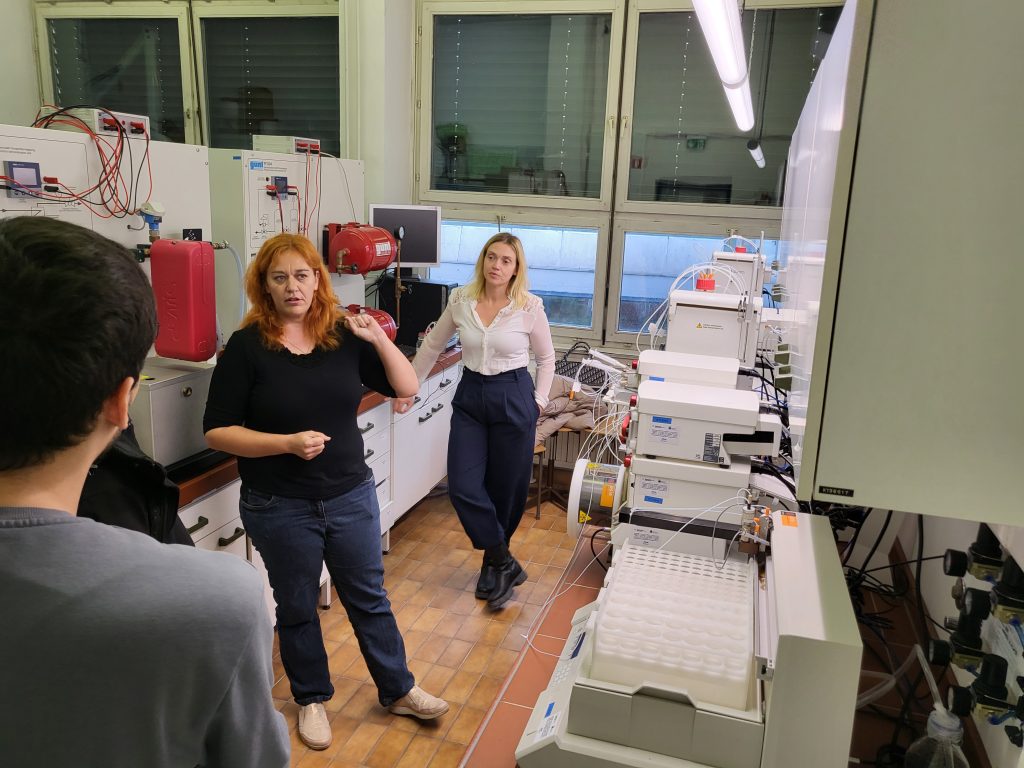 |
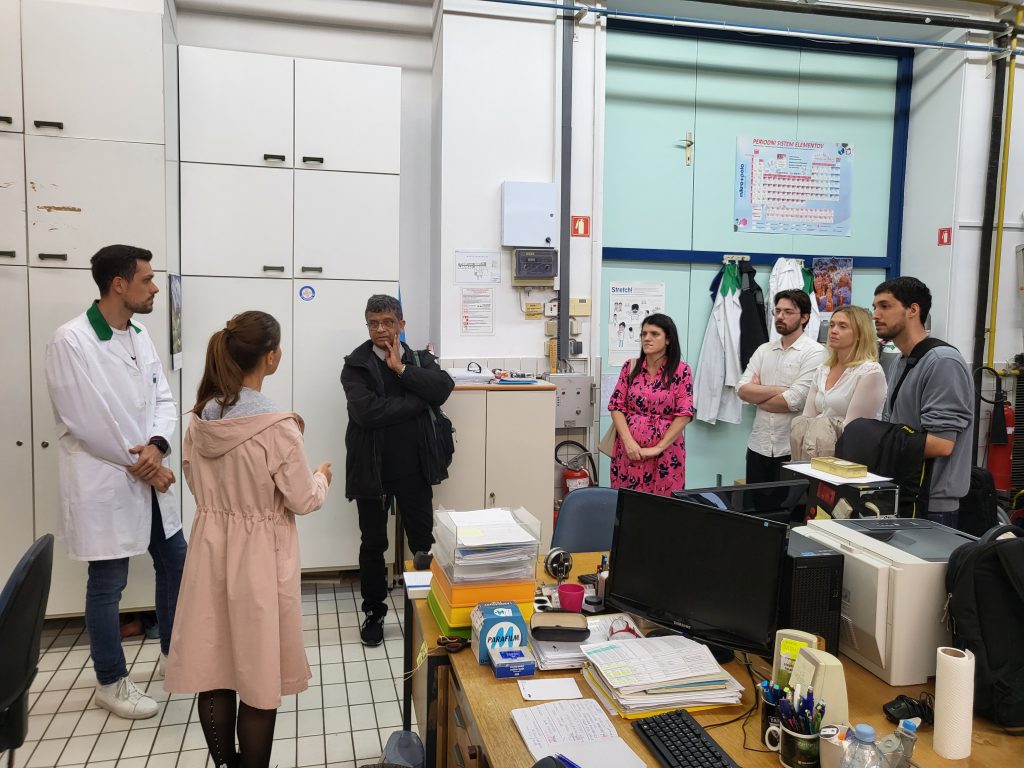 |
Tour of laboratories at FKKT UM.
A notable highlight of the event was the distinguished lecture by Prof. dr. Joydeep Dutta from KTH. Prof. Dutta’s presentation on the latest advances in materials science and sustainable technologies, particularly in the field of water treatment, captivated the participants and spurred thoughtful deliberations.
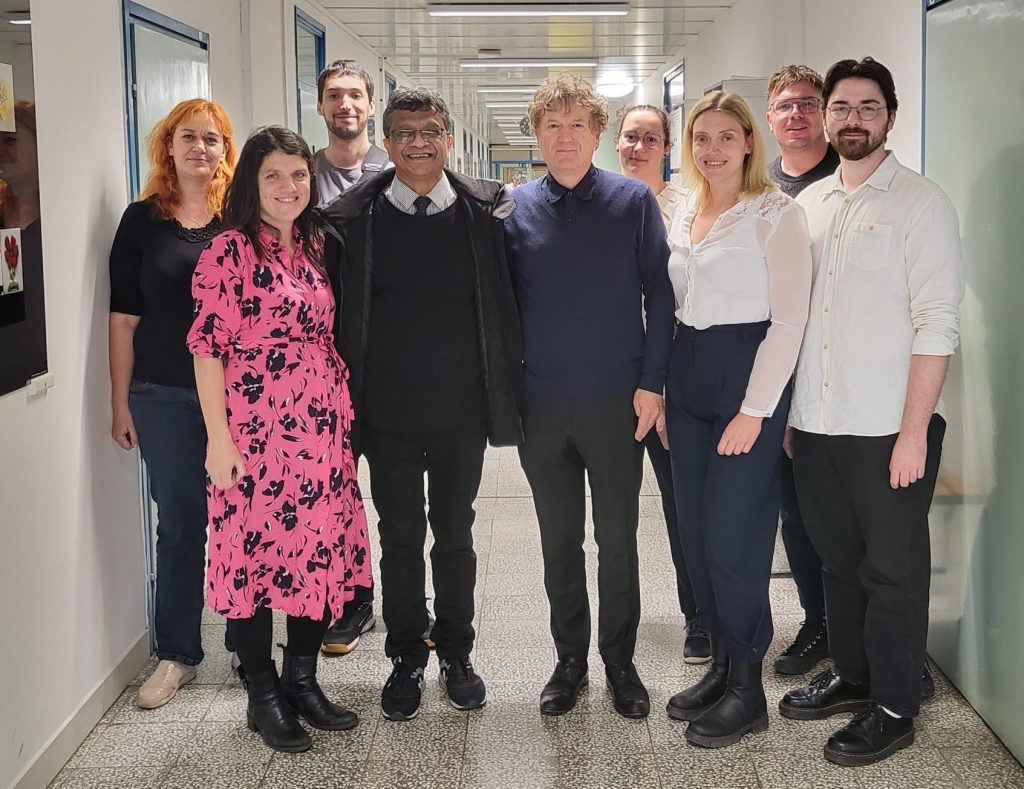
Dr. Andreja Nemet (UM FKKT), dr. Lidija Čuček (UM FKKT), Jan Puhar (UM FKKT), Prof. dr. Joydeep Dutta (KTH), Prof. dr. Zdravko Kravanja (UM FKKT), Tinkara Ošlovnik (UM FKKT), dr. Annamaria Vujanović (UM FKKT), Kostja Klabjan (Clera.One), Rok Pučnik (UM FKKT).
The visit was an important forum for participants to clarify and chart the course for the next six months regarding technology evaluations and implementation of INSPIRE solutions in the wastewater treatment plant in Domžale, Slovenia. Discussions focused on identifying opportunities for collaboration within the INSPIRE project and developing strategies for joint tasks.
In conclusion, the Faculty of Chemistry and Chemical Engineering would like to thank all participants and guests of honour and for their invaluable contributions in making the INSPIRE partners’ visit a resounding success. We will continue to work to advance scientific knowledge and promote international co-operation for the benefit of society.
_____________________________________________________________________________________________________________________
VIDEO ABOUT CORE PRINCIPLES OF THE INSPIRE PROJECT
To kick off the INSPIRE project, the partners gathered in Belgium and contributed to a short video summarising the core principles of the project.
_____________________________________________________________________________________________________________________
PANEL DISCUSION ABOUTH MICROPLASTIC AT TBMCE CONFERENCE
Faculty of Chemistry and Chemical Engineering, University of Maribor (UM) in collaboration with SRIP Circular Economy, hosted an international conference on Technologies and Business Models for Circular Economy – TBMCE, which was held in Portorož, Slovenia from 6th till 8th September 2023.
The plastic problem that humans have created was discussed in a panel entitled “Combating Plastic and Microplastic Pollution in our Waters – Challenges and Solutions”. The panel discussion was moderated by dr. Annamaria Vujanović from UM, who is leading sustainability work packages within two Horizon Europe Mission projects INSPIRE and REMEDIES, focusing on the detection, elimination and prevention of plastics and microplastics in European seas and rivers. The conference also welcomed several representatives of the EU Mission projects INSPIRE and REMEDIES, including University of Maribor, Clera.One, Infordata and National Institute of Chemistry (NIC). The experts exchanged valuable knowledge and ideas to advance the cause of these projects and look towards future innovations.

Representatives of partners in the Horizon Europe projects INSPIRE and REMEDIES: Marko Petelin (Infordata), dr. Annamaria Vujanović (University of Maribor), Kostja Klabjan (Clera.One).
The panel was honoured to host national and international experts from the scientific community, business as well as NGOs. The experts on panel discussion drew attention on the various laws concerning waste management. dr. Mojca Škerget, a full-time professor at the University of Maribor and a specialist in separation formulation processes and processes involving subcritical and supercritical fluids, pointed out that after China banned foreign waste in 2018, most of waste ends up in Indonesia or Turkey. The main issue is that where we have no information about what happens to plastic waste outside the European Union. dr. Andrej Kržan, research director at PlanetCare and a scientist working on waste management, added that big companies do not listen to professionals when they warn about climate change and the impact of plastic waste on the environment and human health. Maria Westerbos, founder and director of the Plastic Soup Foundation and one of the leading names in the fight against plastic and microplastic pollution pointed out that the fossil fuel industry is still investing in the mass production of plastics today, which is unacceptable because it is in their interest to continue exploiting the environment without considering the impact on humans, animals and the planet. dr. Mateja Grego, a research associate at National Institute of Biology and a team member of HEU Mission project named Plastic Pirates, which deals with marine biology and microplastic pollution in marine sediments, explained that plastics in water break down mechanically into small particles quite quickly due to various factors (e.g. sun exposure).
The expert also pointed out the importance of the excessive use of single-use plastics – the extraction of oil alone and its further processing into single-use plastics is resource and energy intensive and has a huge impact on the environment. In addition, not all single-use plastics can be recycled. dr. Mojca Škerget explain the solution of chemical recycling of plastic waste (e. g. PET bottles), but the problem is that consumers recycle inadequately, resulting in waste that is only suitable for incineration. Bart Stegeman, developer of new products and processes at Climate-KIC added that consumer awareness supported by activities in EU projects involving citizens is the key.
The experts concluded that the key issue is the overproduction and overuse of plastics, and since we are far from the EU recycling targets and even further from Green Deal, it is important that scientists and activists work together with politicians and relevant organisations to ensure sustainable change for future generations.
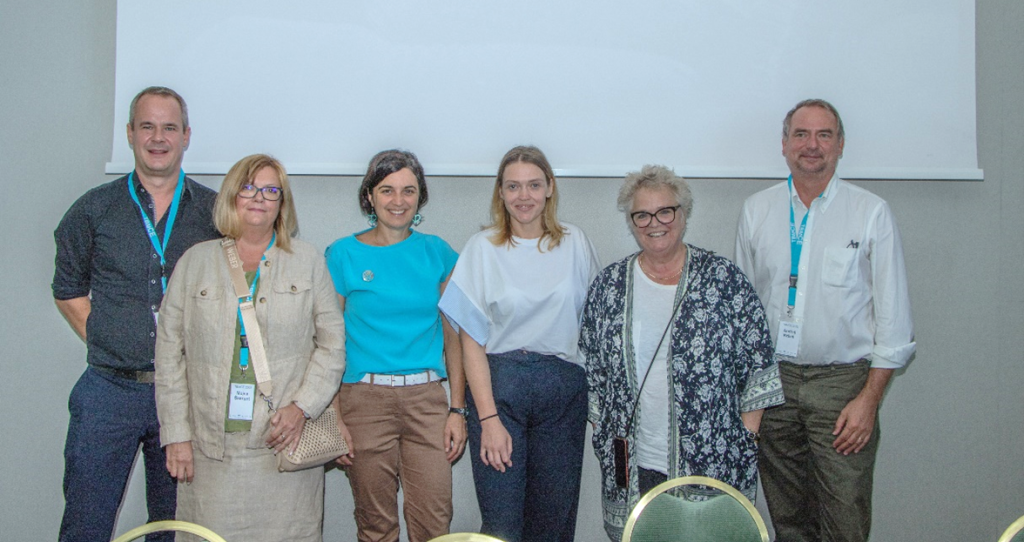
Experts on panel discussion “Combating Plastic and Microplastic Pollution in our Waters – Challenges and Solutions”: Bart Stegeman (Climate-KIC), dr. Mojca Škerget (UM), dr. Mateja Grego (NIB), dr. Annamaria Vujanović (UM), Maria Westerbos (Plastic Soup Foundation), dr. Andrej Kržan (NIC, Planet care).
_____________________________________________________________________________________________________________________
KICK OFF MEETING IN BELGIUM
In the beginning of july, the INSPIRE Europe consortium kicked off the start of a new four-year project. 25 partners spread across Europe and one partner from Thailand will join forces to reduce the plastic pollution in European rivers.
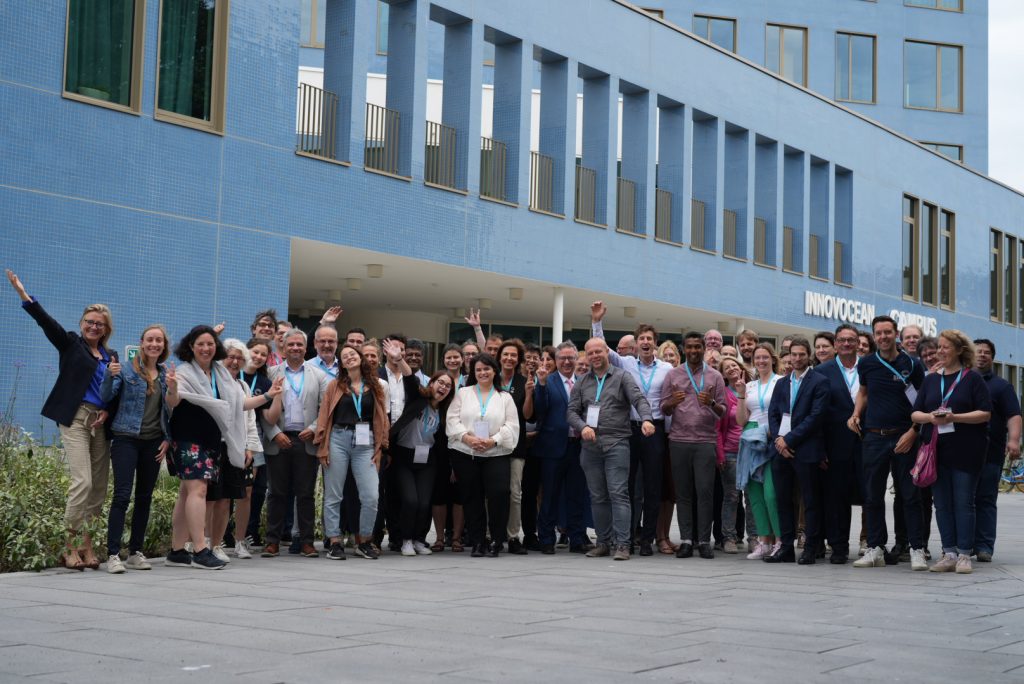
Group photo of all participants at Kick off meeting.
Plastic pollution is becoming a major concern. At this moment about 150 million tons of potentially harmful plastic is present in our oceans. Although this number is already hard to fathom, without any measures it is expected to further increase on an annual basis with 10%. Rivers and estuaries play an important role in the transport of plastics from land-to-sea, but also the ecosystems and biodiversity of rivers themselves are impacted by plastic pollution. The health of Europe’s single connected system of ocean, seas, coastal and inland waters is an important challenge for the European Union. This is reflected in the Green Deal targets and Horizon Europe Mission which has the ambition to restore our oceans and waters by 2030.
Within INSPIRE, we aim to bring different technologies and solutions together focusing on the detection, collection and prevention of litter, plastics and macroplastics in rivers and on riverbanks. We will work on six focus areas at which different technologies and actions will be implemented, being: Scheldt, Po, Rhine, Douro, Savinja and Danube rivers.
Our INSPIRE team will eagerly reach out to researchers, politicians, industry and citizens to be involved and participate in the development and implementation of solutions to break the plastic wave for the sake of the environment. Based on lessons learned from the focus areas, INSPIRE technologies and actions will be scaled up and deployed at associated sites, not covered by the consortium.
As partner in INSPIRE, VITO Remote Sensing will determine the plastic flux in rivers and the plastic accumulation along the riverbank. Machine learning techniques will be applied on data collected by cameras under bridges and drones. Such automated monitoring systems are crucial to evaluate mitigation actions like plastic removal and prevention.
